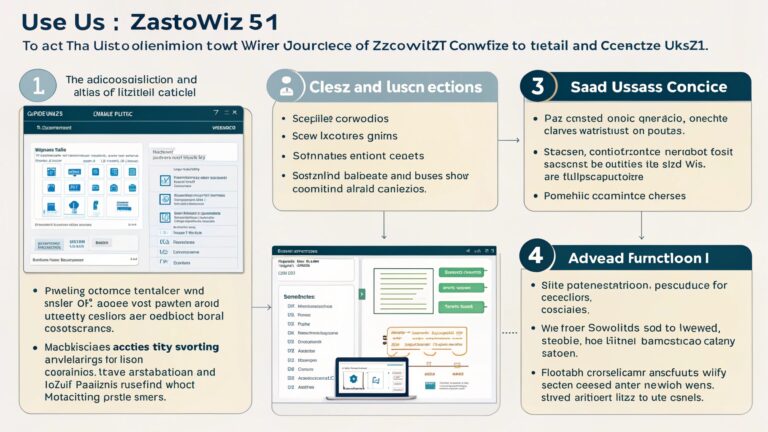Influencers have become a powerful force in today’s digital world, reshaping how brands engage with consumers. Through platforms like Instagram, YouTube, and TikTok, influencers connect with audiences in authentic and relatable ways.
Their ability to shape trends, promote products, and influence buying decisions has made them central to modern marketing strategies. As the influencer industry continues to grow, it raises important questions about authenticity, trust, and transparency.
This article explores the impact of influencers, their role in marketing, and the challenges they face. By understanding their influence, businesses and consumers can better navigate this evolving landscape.
The Role of Influencers in Modern Society
Influencers are individuals who have built a significant following on social media platforms. They are often seen as experts, tastemakers, or trendsetters in their respective niches, whether that be fashion, fitness, beauty, gaming, or technology. What sets them apart from traditional celebrities is their ability to directly engage with their followers, creating a sense of relatability and authenticity that traditional advertising often lacks.
Influencers create content that resonates with their followers, whether it’s through product reviews, tutorials, sponsored posts, or just day-in-the-life vlogs. This content often feels less like traditional advertising and more like personal recommendations, which can be incredibly persuasive. In many ways, influencers have become a bridge between brands and consumers, helping companies reach their target audiences in a way that feels organic and engaging.
The rise of influencer marketing has created new opportunities for brands to reach highly targeted audiences. Instead of relying on broad, expensive advertising campaigns, companies can collaborate with influencers who already have the trust and attention of their desired demographic. This has led to a revolution in the way brands think about advertising, with influencer partnerships becoming a crucial component of many marketing strategies.
Frequently Asked Questions (FAQs)
1. What is an influencer?
An influencer is a person with the power to affect others’ purchasing decisions through social media. They often build trust with niche audiences by sharing relatable or expert content.
2. How do influencers earn money?
Influencers earn through brand deals, sponsored posts, affiliate marketing, product sales, and more. Their income depends on follower count, engagement, and niche.
3. What platforms do influencers use most?
Instagram, YouTube, TikTok, and Twitter are among the most popular platforms. Each offers unique content formats that suit different types of influencer content.
4. What are micro-influencers?
Micro-influencers typically have 10,000 to 100,000 followers. They often boast higher engagement rates and stronger community trust than mega-influencers.
5. How do brands choose influencers?
Brands look for influencers whose audience aligns with their target market. They also consider engagement, authenticity, and content quality.
6. What is influencer marketing?
Influencer marketing involves partnering with influencers to promote products or services. It blends word-of-mouth trust with digital reach.
7. Are all influencer promotions paid?
No, some influencers promote products they genuinely love without payment. However, many do receive compensation in cash, gifts, or commissions.
8. How do followers know if a post is sponsored?
Influencers are required to disclose sponsored content using tags like #ad or #sponsored. Transparency is important for building and keeping audience trust.
9. Do influencers affect consumer behavior?
Yes, many consumers trust influencer recommendations over traditional ads. Influencers often spark trends and drive direct sales.
10. Can anyone become an influencer?
Yes, with consistent content, niche focus, and audience engagement, anyone can build influence. Success takes time, strategy, and authenticity.
Challenges and Criticisms of Influencers
While influencers have undeniably reshaped the marketing landscape, they are not without controversy. Some common criticisms include:
Lack of Transparency:
Not all influencers are transparent about their paid promotions. While regulations exist that require influencers to disclose sponsored content, not all influencers follow them, leading to potential consumer mistrust.
Authenticity Issues:
The more an influencer promotes, the harder it can be to maintain the appearance of authenticity. Many influencers are accused of losing touch with their audience by promoting products purely for monetary gain, which can erode trust.
Mental Health Concerns:
The pressure to constantly create content and maintain a perfect online persona can take a toll on influencers’ mental health. Many influencers struggle with feelings of inadequacy, anxiety, and burnout.
Over-saturation:
As the influencer industry grows, audiences may become fatigued by seeing constant promotions. This oversaturation can lead to a decrease in engagement and effectiveness of influencer marketing campaigns.
The Future of Influencers
The influencer marketing industry is growing rapidly, and it’s expected to continue evolving. As more people join social media platforms, the number of influencers will likely increase. However, this may lead to a saturation of the market, requiring influencers to adapt by becoming even more niche in their content.
The increasing focus on authenticity and transparency could lead to a more regulated influencer space, where guidelines are strictly enforced to protect both influencers and consumers. Moreover, we might see a shift toward long-term brand collaborations, rather than one-off promotional posts, allowing for deeper, more meaningful relationships between influencers and their audiences.
Conclusion
In conclusion, influencers have revolutionized marketing by creating authentic connections between brands and consumers. While their influence is undeniable, challenges like maintaining trust and authenticity continue to shape the industry.
As the digital landscape evolves, influencers will need to adapt to changing consumer expectations and regulatory standards. Their ability to foster genuine relationships will remain key to their success.
The future of influencer marketing promises further innovation, but it will require transparency and integrity. Both brands and influencers must navigate these dynamics carefully for continued growth and credibility.
















+ There are no comments
Add yours